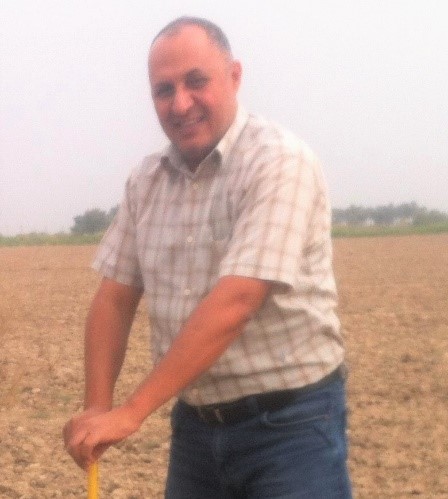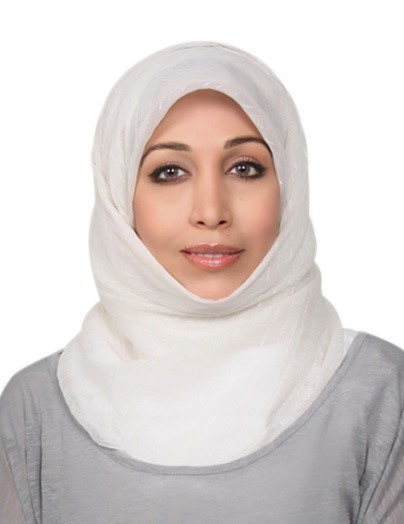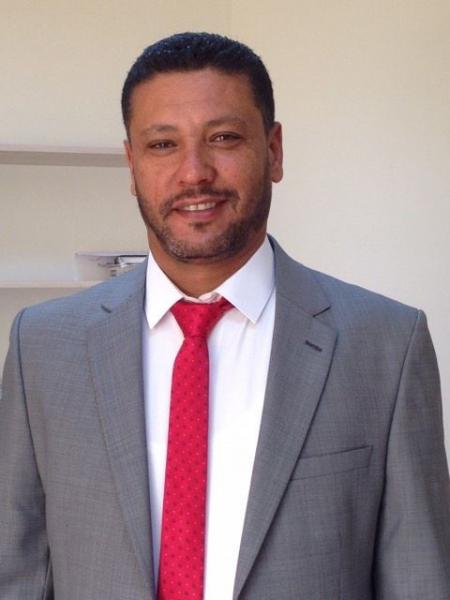Arab Fund for Economic and Social Development supports young researchers

Capacity development is key to bridge knowledge gaps and enhance the skills of young scientists.
Arab countries share a number of common challenges, including rapid population growth, progressive exploitation and exhaustion of water resources, land degradation, and the adverse consequences of climate change. To effectively address these challenges, the Arab Fund for Economic and Social Development and ICARDA are working closely with Arab countries to develop skills and capacities of young scientists and technicians and bridge knowledge gaps via short- and long-term group training courses, individual degree and non-degree trainings, as well as an innovative Fellowship Program for Young Arab Scientists.
 Mohammed Jabar Abdulradh, MSc, is a third-year PhD student at the Department of Agricultural Economics, University of Baghdad, and a senior chief agronomist at the Ministry of Agriculture of Iraq. “AFESD and ICARDA are supporting me in many ways, including financial aid for my PhD research, as well as technical and scientific assistance to my research, which is jointly supervised by ICARDA and the University of Baghdad,” Mohammed says. “During my stay, I have received access to updated global research studies and valuable scientific notes by ICARDA scientists, which have significantly contributed to my studies on ‘Economic and environmental impacts of salinity on livelihoods in Iraq.’” Mohammed Abdulradh hopes that PhD and MSc joint supervision between ICARDA and Iraqi students continue in the future.
Mohammed Jabar Abdulradh, MSc, is a third-year PhD student at the Department of Agricultural Economics, University of Baghdad, and a senior chief agronomist at the Ministry of Agriculture of Iraq. “AFESD and ICARDA are supporting me in many ways, including financial aid for my PhD research, as well as technical and scientific assistance to my research, which is jointly supervised by ICARDA and the University of Baghdad,” Mohammed says. “During my stay, I have received access to updated global research studies and valuable scientific notes by ICARDA scientists, which have significantly contributed to my studies on ‘Economic and environmental impacts of salinity on livelihoods in Iraq.’” Mohammed Abdulradh hopes that PhD and MSc joint supervision between ICARDA and Iraqi students continue in the future.
 Saja Taha Al-Zoubi, PhD, a research fellow in socio-economic studies at ICARDA and the World Academy of Sciences (TWAS), has been studying strategies to empower women and improve the livelihoods of Syrian families in rural areas. “I thank AFESD, ICARDA and TWAS for the opportunity to complete my research on ‘Enhancing the coping mechanisms of Syrian refugees for improving their food security and livelihoods in Lebanon,’” she says. Saja Al-Zoubi believes, her experience with ICARDA team will add value to her research.
Saja Taha Al-Zoubi, PhD, a research fellow in socio-economic studies at ICARDA and the World Academy of Sciences (TWAS), has been studying strategies to empower women and improve the livelihoods of Syrian families in rural areas. “I thank AFESD, ICARDA and TWAS for the opportunity to complete my research on ‘Enhancing the coping mechanisms of Syrian refugees for improving their food security and livelihoods in Lebanon,’” she says. Saja Al-Zoubi believes, her experience with ICARDA team will add value to her research.
The AFESD supported Young Agricultural Scientists Program, established in 2012, is focusing on long-term impacts by prioritizing the capacity strengthening of farmers and extension and technical staff from agriculture-related ministries, institutions and associations. This approach – which has already reached over 45,000 beneficiaries - and an additional 19,000 technicians, researchers and policy-makers - includes country and regional training activities, inter-country scientific visits, travelling workshops and symposia, farmer field schools and field days. Young researchers are also targeted and the YASP Program has allowed 48 young scientists to be trained in advanced institutions and laboratories of the region. The training covers various scientific topics and themes related to improving the productivity of the wheat based system.
 Yahya Hussein Istaitih, PhD, a research fellow at the National Agricultural Research Center of Palestine in Jenin, had attended many ICARDA training courses in Syria and Jordan. “With the help of qualified experts, I have obtained deeper knowledge and enhanced my skills to develop PhD thesis on technical, institutional and marketing constraints for the development of small ruminant livestock sector in Palestine,” he says. “I would like to thank ICARDA and AFESD for gained knowledge, encouragement and logistical support for West Bank study.” Yahya Istaitih hopes his research outputs serve to enhance the food security and farmers’ profitability in Palestine, where the small ruminant production has traditionally been a key source of income for West Bank inhabitants. Watch Yahya’s testimonial here.
Yahya Hussein Istaitih, PhD, a research fellow at the National Agricultural Research Center of Palestine in Jenin, had attended many ICARDA training courses in Syria and Jordan. “With the help of qualified experts, I have obtained deeper knowledge and enhanced my skills to develop PhD thesis on technical, institutional and marketing constraints for the development of small ruminant livestock sector in Palestine,” he says. “I would like to thank ICARDA and AFESD for gained knowledge, encouragement and logistical support for West Bank study.” Yahya Istaitih hopes his research outputs serve to enhance the food security and farmers’ profitability in Palestine, where the small ruminant production has traditionally been a key source of income for West Bank inhabitants. Watch Yahya’s testimonial here.
Supported by a diverse group of donors including AFESD, Kuwait Fund for Arab Economic Development, Japan International Cooperation Agency and others, ICARDA capacity development activities provide opportunities to upgrade the knowledge of young agricultural professionals in new science, innovations and technologies as well as applied research for development.
